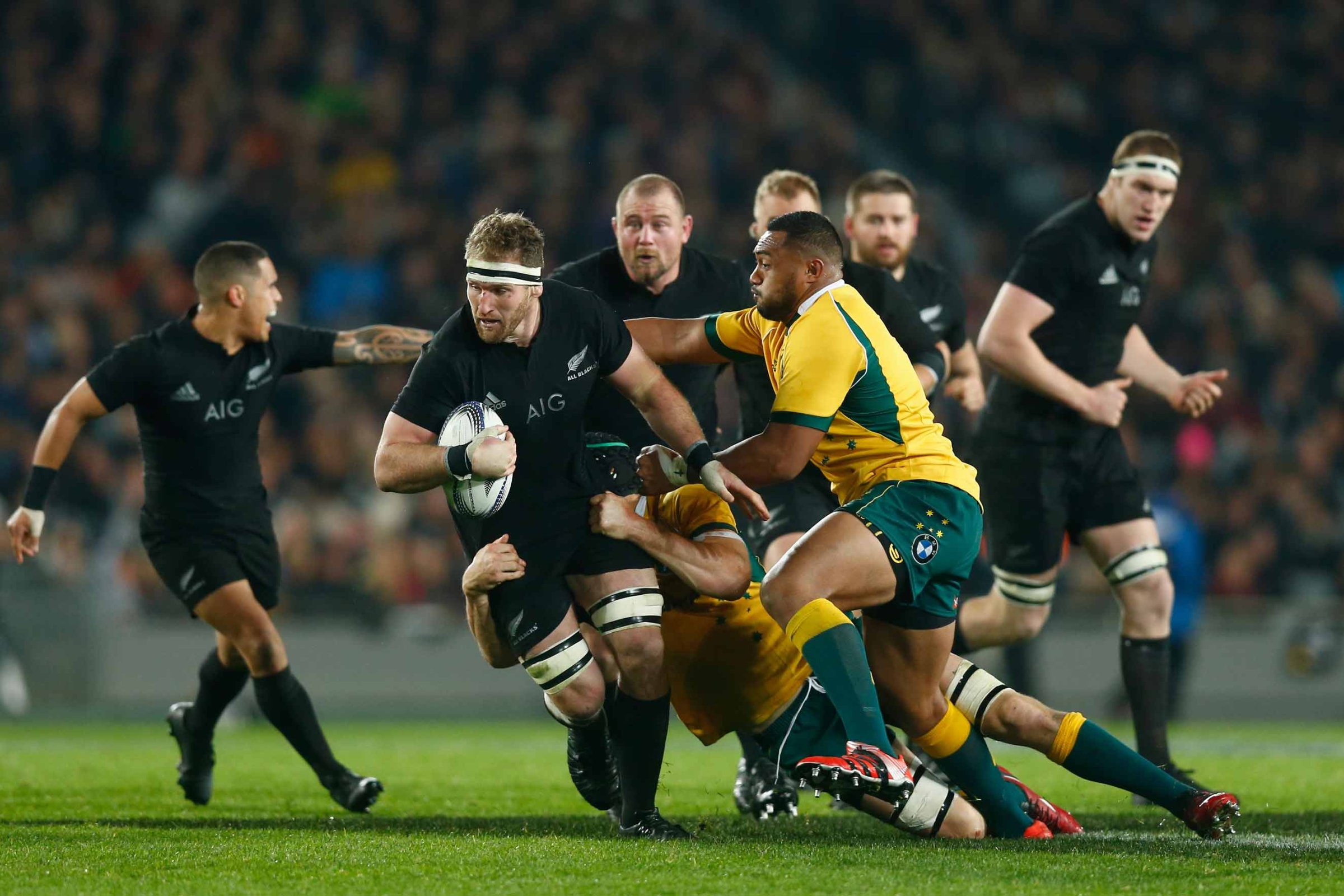
England hosts the Rugby World Cup, which begins on Sept. 19, and it will play the opening game against Fiji. The country essentially invented the game in its modern form, which takes its name from the Rugby School in Warwickshire. But there’s no doubt that interest in the world’s third largest sporting tournament will be equally keen in the southern hemisphere, among rugby powers like Australia, South Africa and above all else, New Zealand.
The All Blacks, as the New Zealand team is known for the color of its uniforms, are the clear favorites to hoist the cup, at 11-8, according to bookmakers. That’s no surprise—since 1903, New Zealand has won 78% of its matches, well ahead of second-place South Africa, which has won 65% over the same period. Since the 2011 World Cup, which New Zealand won, it has lost just three of its last 47 games. For 4.5 million New Zealanders, this is a source of national pride, and the All Blacks know they carry the hopes and dreams of their compatriots in England this fall.
New Zealand’s dominance is symbolized by its famous prematch ritual, which takes place in the center of the pitch before kickoff. The 15 players stand in a horseshoe and carry out the haka, a war dance that has long been performed by the indigenous Maori inhabitants of New Zealand. It is as intimidating as it is theatrical. Opponents have tried turning their backs, sitting down and even standing nose-to-nose with their All Black rivals, but nothing has neutralized the eerie effectiveness of the ritual. New Zealand’s opponents always seem to start off the game on their back foot.
The haka isn’t the only part of Maori culture that the All Blacks have harnessed. They’ve also adopted the Maori concept of mana, or humility. This means the players see themselves as secondary to the ethos of the team. That spirit endures off the pitch—all players are expected to sweep and clean their changing rooms after every game, not something you often see in professional sports.
Then there are the players. Unlike South Africa and Australia, where relatively few athletes from the countries’ indigenous population have ever represented their national teams, New Zealand Maoris have contributed to the lineup as well as the culture of the All Blacks, playing a central role for as long as rugby has been played in the country.
Since 1970, when Bryan Williams became the first Pacific Islander All Black, New Zealand has also drafted in scores of players from nearby countries like Samoa, Tonga and Fiji. Coaches tour the islands looking for talented players who are then invited to train and play in New Zealand, where they are eventually naturalized, making them eligible for the national team. It may not exactly be sporting, but the Pacific Islanders, like the Maoris, are Polynesian and have a genetic disposition toward bulk and speed—two characteristics that make them perfect for rugby. (And American football as well—this year five Polynesian players were selected in the first 66 picks of the NFL draft.)
Failure is not an option for New Zealand—and with their history of dominance, it’s not something the All Blacks have had to experience very often. But those expectations have sometimes hurt New Zealand in the quadrennial Rugby World Cup, where the stakes are so high that the pressure can sometimes become overwhelming—especially for the favorites.
On the rare occasions when the All Blacks lose, the pain of New Zealanders is striking to behold; this is far more than just a game for the Kiwis. After France upset New Zealand in the Rugby World Cup in 1999, an editorial in the New Zealand Herald summed up the sorrow: “Seldom has this country suffered a greater sporting disappointment than its loss in the Rugby World Cup semifinal last Sunday, and the trauma that seems to have gripped the country for almost a week now … tells us something about ourselves.”
Though the All Blacks won the last Cup in 2011, the pressure is only increasing for New Zealand. This year, they want to be the first team to win two Rugby World Cups in a row. And everyone else in the field will be doing everything they can to stop them.
Read More: 5 Reasons Why You Should Pause American Football and Watch the Rugby World Cup
Read More: In Its 8th World Cup, Rugby Hopes to Take Over the World
More Must-Reads from TIME
- Donald Trump Is TIME's 2024 Person of the Year
- Why We Chose Trump as Person of the Year
- Is Intermittent Fasting Good or Bad for You?
- The 100 Must-Read Books of 2024
- The 20 Best Christmas TV Episodes
- Column: If Optimism Feels Ridiculous Now, Try Hope
- The Future of Climate Action Is Trade Policy
- Merle Bombardieri Is Helping People Make the Baby Decision
Contact us at letters@time.com